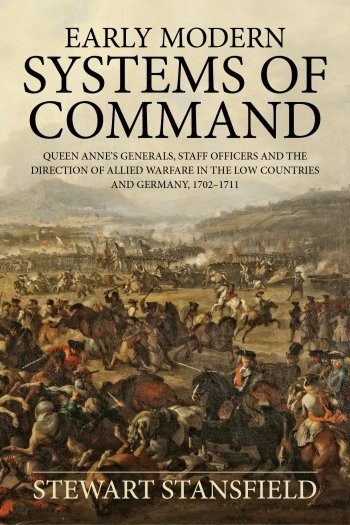-
Załączniki bezpieczeństwa
Załczniki do produktuZałączniki dotyczące bezpieczeństwa produktu zawierają informacje o opakowaniu produktu i mogą dostarczać kluczowych informacji dotyczących bezpieczeństwa konkretnego produktu
-
Informacje o producencie
Informacje o producencieInformacje dotyczące produktu obejmują adres i powiązane dane producenta produktu.HELION
-
Osoba odpowiedzialna w UE
Osoba odpowiedzialna w UEPodmiot gospodarczy z siedzibą w UE zapewniający zgodność produktu z wymaganymi przepisami.
The Anglophone history of the War of the Spanish Succession (1701–14) in the Low Countries is dominated by military biographies of John Churchill, first Duke of Marlborough (1650–1722), and studies of the battles he fought. Yet while Marlborough exercised a profound influence as a statesman and general—operating as he did in a less flexible paradigm that could emphasise high-level actors at the expense of their subordinates—he did not direct his forces, or liaise with those of his allies, alone. Throughout the conflict, Marlborough was variously aided, abetted and disrupted by a number of general and staff officers. These officers provided the mechanism by which supra-regimental command was effected. While these individuals possessed military dignity according to their rank and station, their real authority in the army was in no small part drawn from the powers and duties delegated to them by the commander-in-chief, or assumed upon their own initiative. Clear chains of command in the modern form did not exist. Such officers functioned not only as vital elements in their own army, but within the broader context of confederate warfare as a whole. They came from diverse backgrounds and possessed varying political affiliations, aspirations and notions of duty. Their careers were governed as much by patronage and preference as any personal merit. A burgeoning sense of military duty was complicated by prejudice, and the boundary between public and private endeavour was indistinct. Some officers gained wealth and financial security in the course of the war; others were ruined by the intrigues and peculations of themselves and others. Early Modern Systems of Command explores the lives these individuals led on campaign and the nature of the apparatus of command they formed. Drawing upon a wealth of primary material—including sources hitherto unstudied—it examines topics as diverse as corruption, logistics, military justice and intelligence-gathering. Investigating not only the degree to which all actors, from the commander-in-chief down to his subordinate officers, were active in the decision-making processes of the campaign, but also the extent to which they contributed to the ongoing process of British and European military development.








